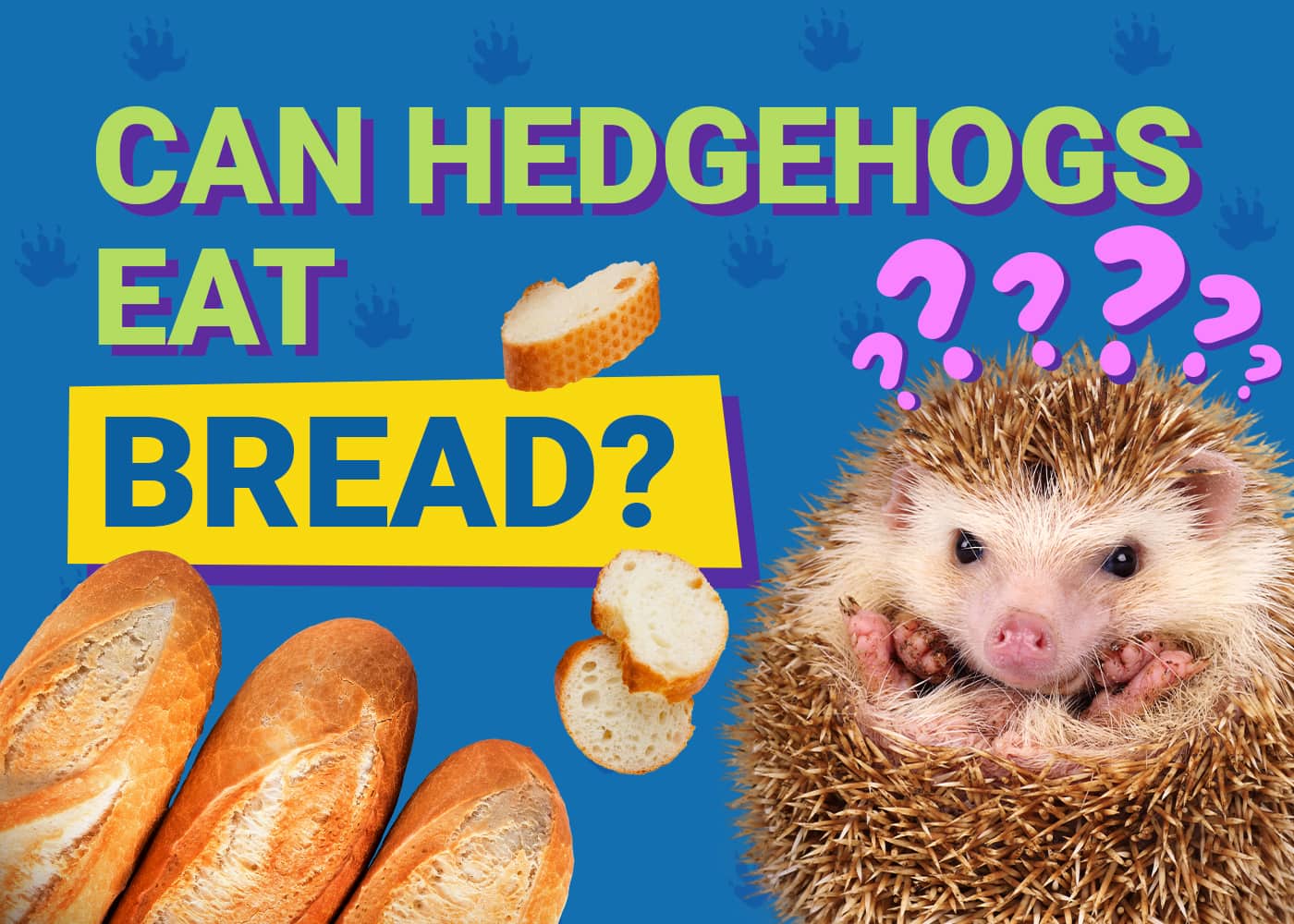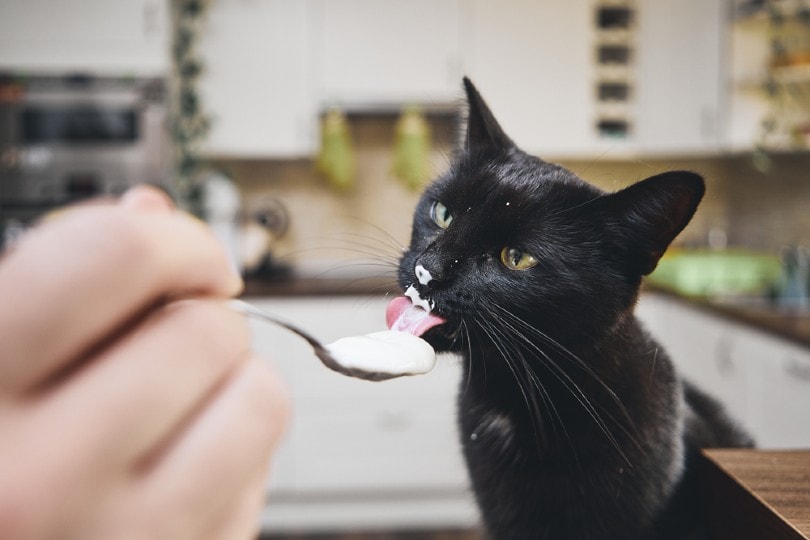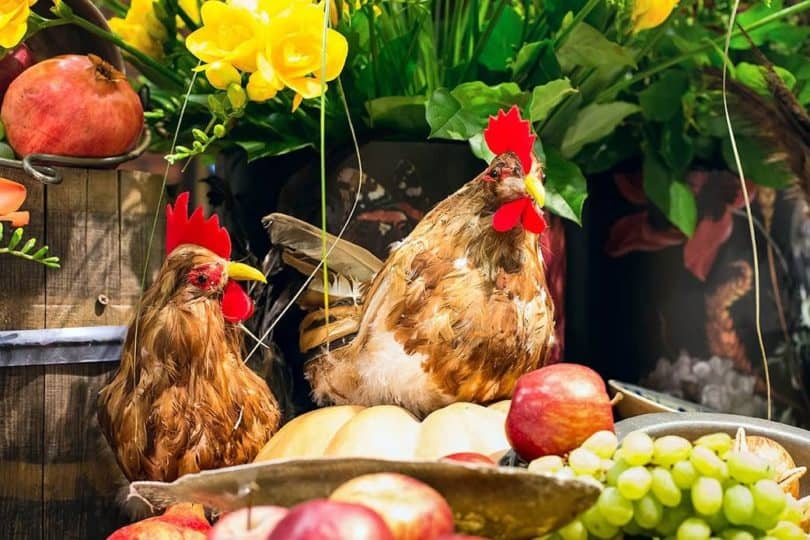Click to Skip Ahead
While bread is a food that most humans love, it’s one that hedgehogs should not eat. In general, white bread doesn’t contain that many nutrients. Also, hedgehogs are insectivores and obligate carnivores, so their diet doesn’t require a large percentage of carbohydrates.
Bread provides little to no nutritional value for hedgehogs, so they shouldn’t eat it, even as a treat. There are many more nutrient-dense treats that your hedgehog will like and also find tasty. Here’s everything you need to know about a hedgehog’s diet and tasty snacks that it can enjoy.

Hedgehog’s Digestive System
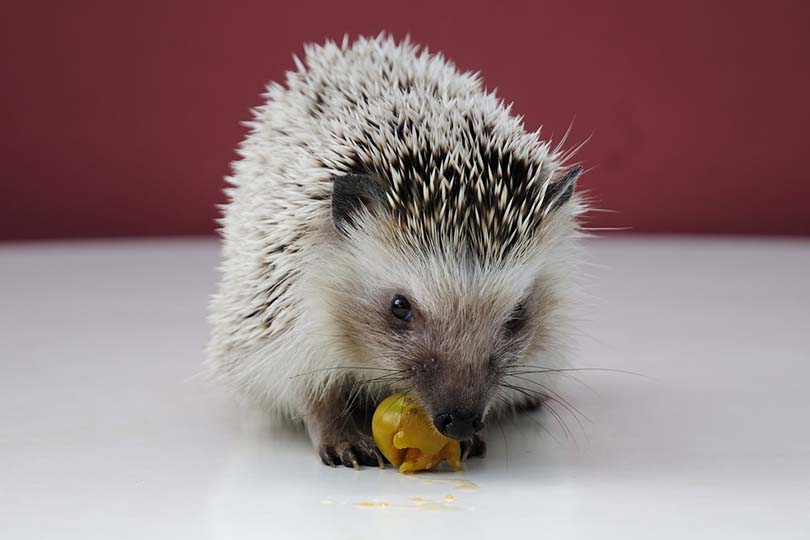
Hedgehogs have a digestive system that closely resembles a carnivore’s digestive tract. They have a simple stomach and smooth colon. They also don’t require a diverse diet like an omnivore’s because the structure of their ileocolic junction can’t process many different kinds of foods.
Although some wild hedgehogs will eat plants, it mostly happens when they can’t find foods from their natural diet. Plants don’t typically have significant nutritional value for hedgehogs.
Hedgehog’s Diet and Nutrition Requirements
As insectivores and obligate carnivores, hedgehogs thrive off a high-protein diet. Because the lifestyles of wild hedgehogs and domesticated hedgehogs are vastly different, their diet is also distinct from each other.

Wild Hedgehogs vs. Domesticated Hedgehogs
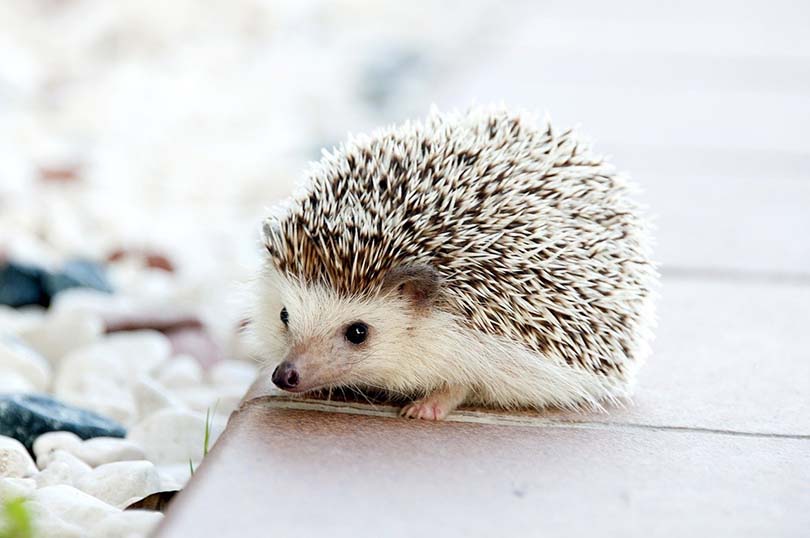
You can find wild hedgehogs in many different habitats, including forests, deserts, and people’s backyards. Wild hedgehogs are burrowers and enjoy sleeping in underground nests made of twigs and leaves.
Wild hedgehogs spend much of their waking moments scuttling around and foraging for food. They’re not known to store food, and they can end up traveling for miles as they search for something to eat. Also, hedgehogs living in climates with colder winters will hibernate.
Putting these factors into consideration, wild hedgehogs tend to follow an insectivore’s diet. Insects have high fat content, which provides a lot of energy, and they help hedgehogs bulk up before winter arrives.
Wild hedgehogs typically enjoy eating beetles, caterpillars, and earthworms. They can also eat meat protein and often raid bird’s nests to eat the eggs and even baby birds.
Since domesticated hedgehogs don’t forage for miles and don’t hibernate, their diet more closely reflects the diet of an obligate carnivore. They thrive on a high-protein diet with less fat content compared to a wild hedgehog’s diet.
Many hedgehog owners will feed their hedgehogs cat food since cats are also obligate carnivores. However, specialized hedgehog food is readily available through online stores, and feeding them this type of food ensures that they’re meeting all their daily nutritional requirements.
Feeding your hedgehog specialized food also makes it easier to monitor your hedgehog’s weight because you’ll have exact measurements for how much it should eat. It’s very important to keep close watch of your hedgehog’s weight because they can become overweight and obese fairly quickly. Regularly tracking your hedgehog’s weight with weekly weigh-ins by using a scale can help immensely.

Other Foods to Avoid
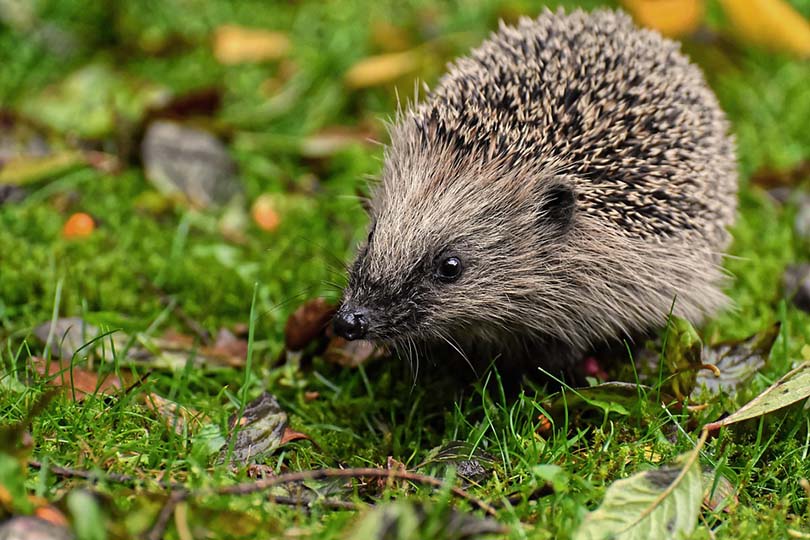
Bread isn’t the only food that hedgehogs shouldn’t eat. Some foods that humans can eat can be harmful or toxic to hedgehogs:
- Avocado
- Chocolate
- Citrus fruit
- Grapes
- Milk
- Nuts and seeds
- Onions
- Raw meat and eggs
Healthy Treats for Hedgehogs
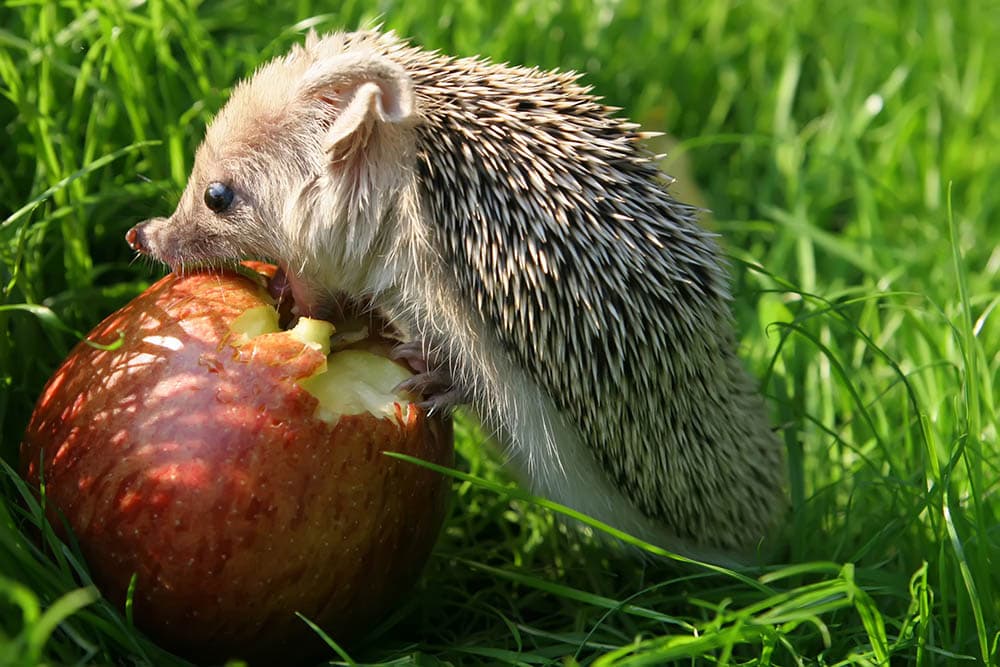
Even though hedgehogs don’t naturally eat a wide variety of food, you can still add various treats to their diets. Hedgehogs can safely eat some fruits and vegetables as a special snack.
- Apples
- Bananas
- Berries
- Cherries
- Kiwi
- Watermelon
- Broccoli
- Cooked carrots
- Cucumber
- Green peppers
- Leafy greens
- Peas
- Black soldier flies
- Crickets
- Dubia roaches
- Earthworms
- Hornworms
- Mealworms
- Super worms
- Waxworms
Hedgehogs can also enjoy eating cooked meat, such as chicken, beef, lamb, and turkey.

How to Give Hedgehogs Special Treats
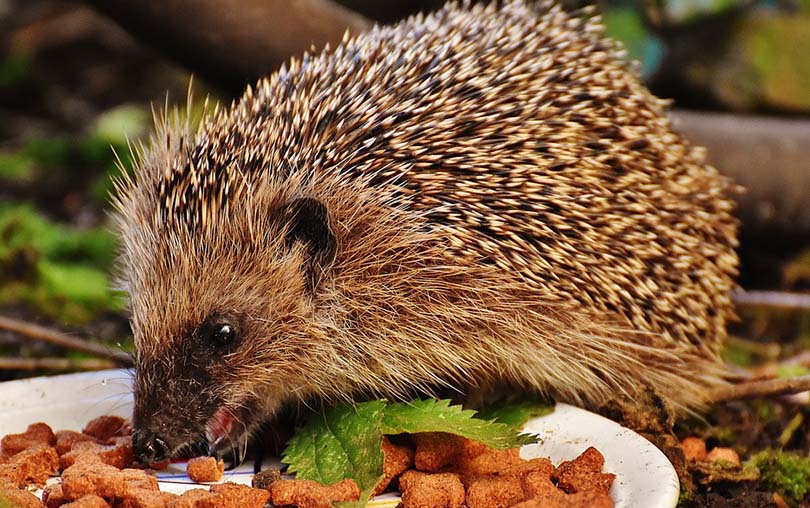
When it comes to giving hedgehogs treats, make sure to only give them treats a couple of times a week. Since they’re prone to becoming overweight, it’s important to restrict the number of treats you give them.
Hedgehogs can also have very sensitive stomachs, so only introduce one new treat per week. Make sure to give them treats in very small portions to avoid upsetting their stomachs. Signs of an upset stomach include vomiting, diarrhea, and lack of appetite.
If you notice these signs, stop giving your hedgehog any treats and only give them their usual food until they subside. If the signs persist for more than a few days, contact your veterinarian for further instructions on how to handle your hedgehog’s upset stomach.
Also, make sure to give your hedgehog softened treats. Hard fruits and vegetables, such as apples and carrots, can damage your hedgehog’s teeth. Therefore, it’s better to give them shredded or cooked versions so that your hedgehog has an easy time eating them.
This is also why you should never give your hedgehog nuts and seeds. They can be too hard on a hedgehog’s teeth, and they can also get stuck in its mouth. This can lead to tooth decay and mouth infections.

Conclusion
Hedgehogs have a very limited natural diet and will benefit from eating protein-dense foods. However, you can occasionally give your hedgehog a special treat. Just make sure that it’s not bread, as bread doesn’t have any nutritional value for hedgehogs.
If you follow the proper steps for giving hedgehogs treats, they can safely learn to enjoy different kinds of foods. Make sure to give your hedgehog only one type of new treat per week. Break down any hard fruits and vegetables so that they’re easier to eat, and only give them treats a couple of times a week to avoid unnecessary weight gain.
Now that you know what’s safe and unsafe for hedgehogs to eat, feel free to explore and see what sort of treats your hedgehog likes. It’s a great way to get to know them a little better and strengthen your bond with your pets.
